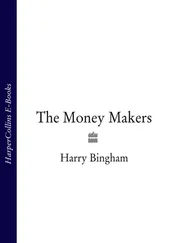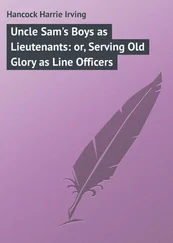‘A man’s got to want to play the hero. And at first I did, I guess. I was crazy for it. But then they promoted me, gave me a squadron. And I changed, or maybe the war changed me. I wanted nothing to do with any of it. But I had no choice. I was a serving officer with orders to carry out. What I did, I did because I had to. To the best of my abilities. But I’m not the man you thought I was, Hen. I’m sorry.’
The storekeeper nodded, his mouth slightly open and a dark crease running between his eyebrows. He looked surprised or disbelieving. But the look was only temporary. He held up his cigarette, still unlit. He smiled like a man who looks around for his glasses and finds them on his nose. He lit the cigarette and inhaled.
‘I’ll tell Sal Lundmark to expect you. You’ll be getting a pot roast, I expect.’
‘Pot roast sounds good.’
‘And you should ask to see the kid’s collection of flying stuff. He’s nuts about it.’
‘Yeah.’
The storekeeper looked up at Abe’s makeshift windsock. The strip of white silk still hung down, as if in surrender. The two men nodded. Words still unspoken drifted just beyond them, out of reach. Then the storekeeper turned and walked away, shoes scrunching in the dazzling dust.
Powell accepted Willard’s offer.
It was an offer that gave everything to Powell, nothing to Willard. Under the terms of the contract – drawn up by Powell’s chief lawyer, then and there, under Willard’s nose – Willard would begin work at Powell Lambert. He’d be a junior employee in the trade finance division, earning a handsome fifteen thousand dollars a year.
Only not.
Of the fifteen thousand dollar salary, Powell would withhold ten thousand in interest payments on the loan. As for the principal, almost nothing was said. Willard wouldn’t even remotely be able to repay the loan from his earnings. When he tried to ask Powell about salary hikes and promotions, Powell dismissed the subject with a brusque jab of his cigar. The only thing Powell did say was, ‘This is Wall Street. There’s money to be made. If you have the gift, you’ll make it. If you don’t…’ He shrugged.
And the meaning of the shrug was obvious. With the contract as it was written now, Willard was a virtual slave. If he couldn’t find two hundred thousand bucks, then he’d be forced to work for Ted Powell for the rest of his life. During the war, Willard had been almost as frightened of capture as he had been of injury. But the barbed wire of a German prison camp could hardly have been more permanent than the contract he had just signed.
And why? Why was he doing what he was doing? Why not take the million, clear the debt, go back out West, get on with life?
Two reasons.
The first was money. A million bucks sounded like a lot. But Willard was a realist. He owed Powell two hundred grand: so a million became eight hundred thousand. And what would Willard live on? In Hollywood he had spent more than a hundred thousand bucks a year. Eight hundred grand would run through his hands in six or seven years, maybe less. And after that, what? To most people, a million dollars would have seemed like the vastest fortune in the world. To Willard, it felt a hair’s breadth from poverty.
But the second reason was the bigger one. He didn’t know how to put it into words. It had to do with pride, with Willard’s sense of himself.
From earliest childhood, he had understood this much: he was the son, the only son, the natural inheritor of the family kingdom. It had always been hard to convey to outsiders the intensity of that feeling. The name for one thing. No one in the family ever called the family business by its name, Thornton Ordnance. It was just the Firm, one word, implicitly capitalised. Willard’s great-grandpa had made it. His grandpa had nourished it. His father had expanded it. It was Willard’s destiny to do the same, to follow in their footsteps, to prove himself worthy of the family name.
And that pointed to a deeper reason still. Willard’s father. Junius Thornton might speak as though it were entirely up to Willard whether or not he joined the Firm, but both men knew that was a lie. It mattered entirely, completely, utterly. If Willard had chosen not to fight for his place at the Firm, Junius wouldn’t have excommunicated his son, but any respect would have vanished completely. Willard already knew too well how bruising his father’s savage, iron-bound silences could be. A lifetime of such silence would have been too much to bear.
And so, as Willard picked up the pen that would sign away his freedom, somewhere in his deepest consciousness he understood this: that everything he was about to do, he was doing for his father.
The Lundmarks’ home had a double door. A screen door closed shut against evening insects and a green-painted wooden door that was folded back inside the room. Inside, the room was lit by a single oil lamp. What with the wire mesh and the dim light, Abe hadn’t been able to see very much of the interior. He knocked at the door, but out of politeness only, to let the folks inside know he was there. Without waiting, he went on in.
And he saw this: the kid, Brad, staring at him with those big wide-open eyes.
And this: the mother, Sal, her face and neck violently disfigured by red burn marks, her reddish hair growing thin and patchy through the burns on her scalp. And her eyes: pale blue, pretty, and completely blind.
And finally this: a photo on the mantelpiece, framed and spotlessly clean. It showed a man’s face, nice looking and strong, Brad’s father. Beneath the photo, an inscription: Stanford G. Lundmark, A Hero of Independence, 1881–1923.
Right away, Abe knew the nature of the storekeeper’s game – a game perfectly calculated to change Abe’s mind, if anything could. Muttering darkly, Abe assumed a smile and advanced. Sal Lundmark had dinner ready. She asked Abe to say grace, which he did, stiffly and out of practice. ‘Let us thank the Lord for these His gifts of goodness. Amen.’ Abe used the grace his father used to say, but finished wondering whether Sal had been expecting something longer and more ornate.
‘Thank you, Captain.’
The conversation began awkwardly. Sal Lundmark had some kind of idea that Abe had to be treated a little better than royalty, maybe not quite as well as a procession of angels. She asked him if it were true that he’d met President Wilson – which he had. She asked him if the Prince of Wales had been as handsome in real life as he looked in his pictures – Abe said he had. She asked what the food had been like the time he’d been a guest of the French Prime Minister.
At that point, Abe had put his knife and fork down.
‘Ma’am, I did a little flying in the war. Right afterwards, I met a few people, got given some medals, had a big fuss made of me. And you want to know something? I hated it. I like my airplane, I like any place that has airplanes in, and I like places that feel like home.’
There was a pause.
When Sal wasn’t using her hands to eat, she rested them on the edge of the table so she could keep her orientation in the room. ‘And your home,’ she said uncertainly. ‘Your home, I guess…’
‘The place I grew up was a little farmhouse in Kentucky.’ He looked around the cluttered room, which was about thirty feet long by fifteen wide. ‘I’d say it was a little bit smaller than this, and we didn’t have that fancy lean-to affair at the back. But don’t worry,’ he added, ‘although this place feels kind of grand, you’ve made it homey. It’s a pleasure to be here.’
She laughed. Abe laughed. Brad laughed with pleasure at seeing the ice broken. The conversation ran easily after that. Stanford Lundmark had worked as a carpenter and, when work was hard to come by, a farm labourer. Abe knew plenty about farming from his childhood, and they talked about good harvests and lousy employers.
Читать дальше












